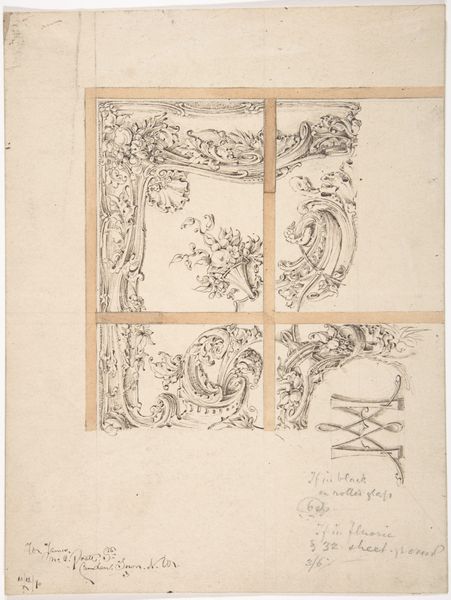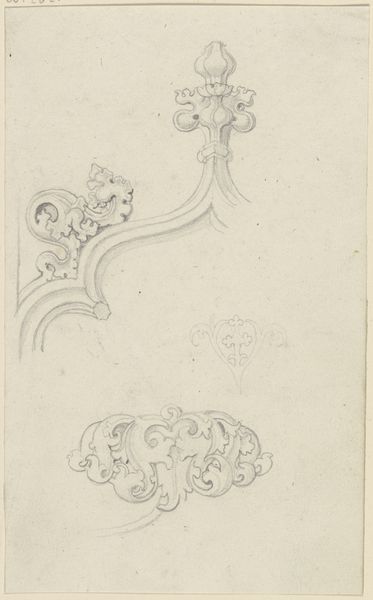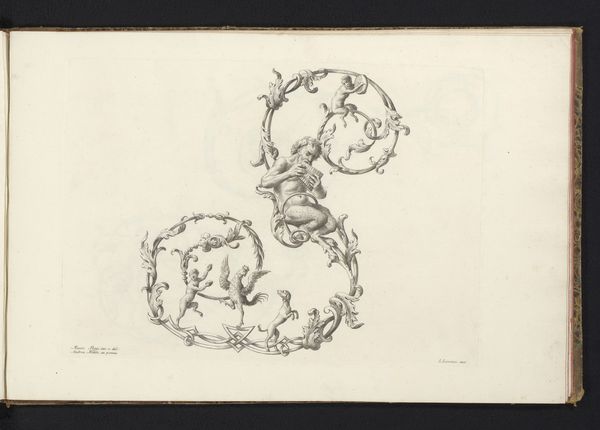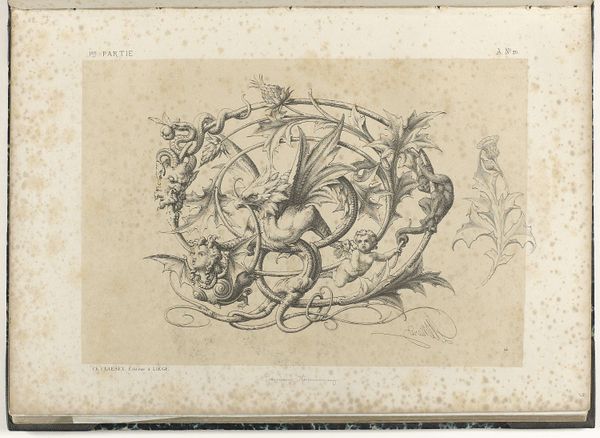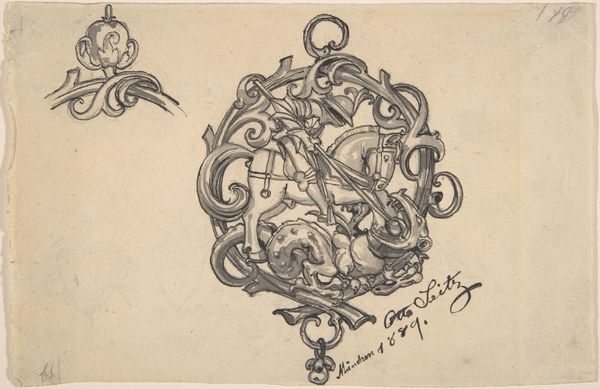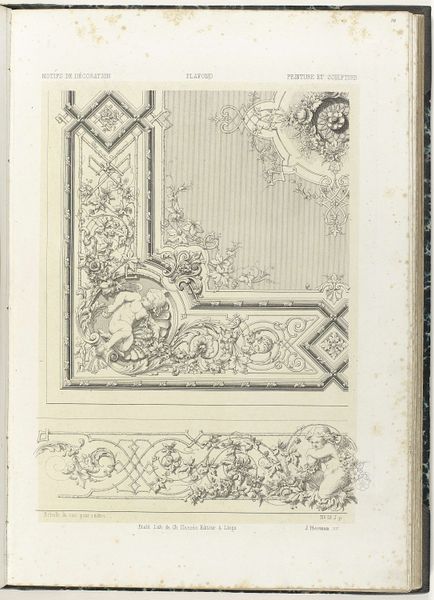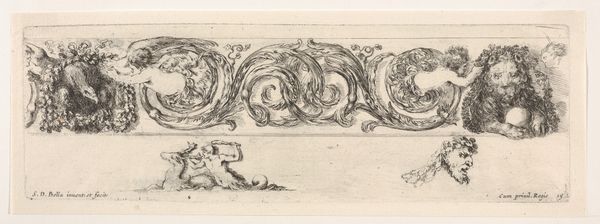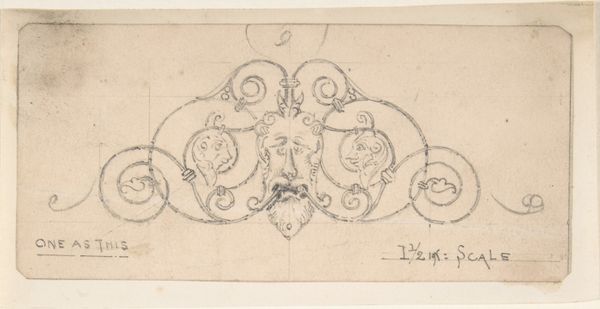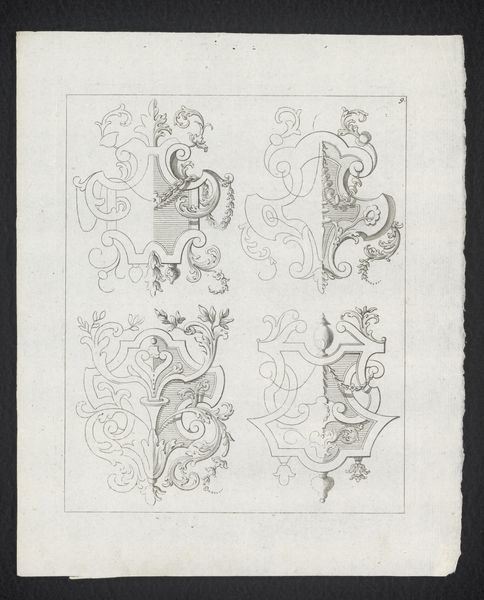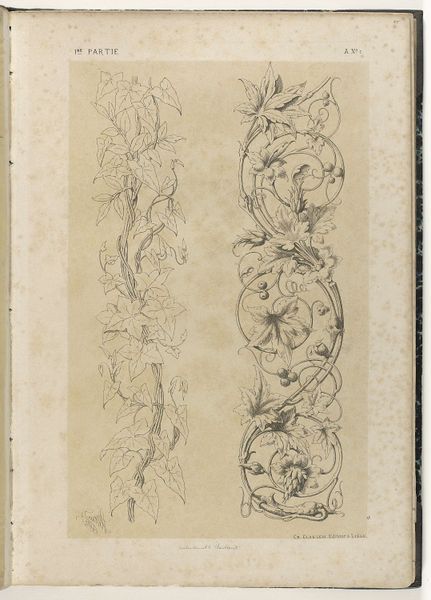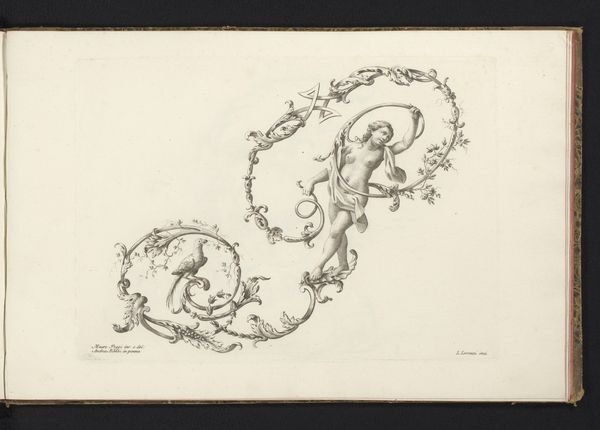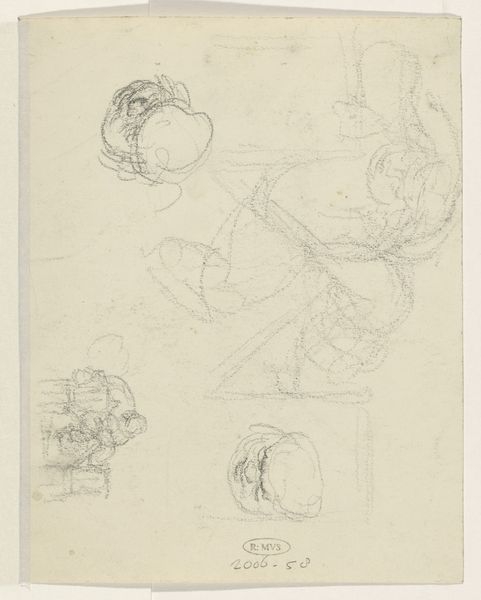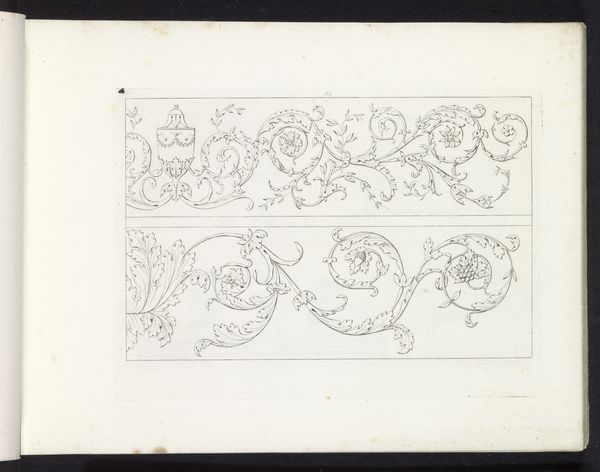
drawing, ink
#
drawing
#
form
#
ink
#
line
Dimensions: height 418 mm, width 290 mm
Copyright: Rijks Museum: Open Domain
Michel Liénard made this print of five botanical ornaments using lithography, though the exact date is unknown. It’s a page from a book published in Liège, Belgium, so we can think of it as emerging from a 19th century culture deeply invested in both science and art. The image presents us with highly stylized, almost artificial-looking, plant forms. Notice how each element is painstakingly rendered with detailed shading to appear three-dimensional. Lithography made it possible to produce accurate and repeatable images at relatively low cost. Publishers like Claessens in Liège sought to profit from the growing demand for visual material in education, industry, and the decorative arts. Historians of science and design have shown how pattern books and encyclopedias helped disseminate new ideas. Here, we see one example of how new printing technologies contributed to the circulation and standardization of visual knowledge. To understand its place, a researcher might consult trade publications, design school syllabi, and the archives of printing firms.
Comments
No comments
Be the first to comment and join the conversation on the ultimate creative platform.
